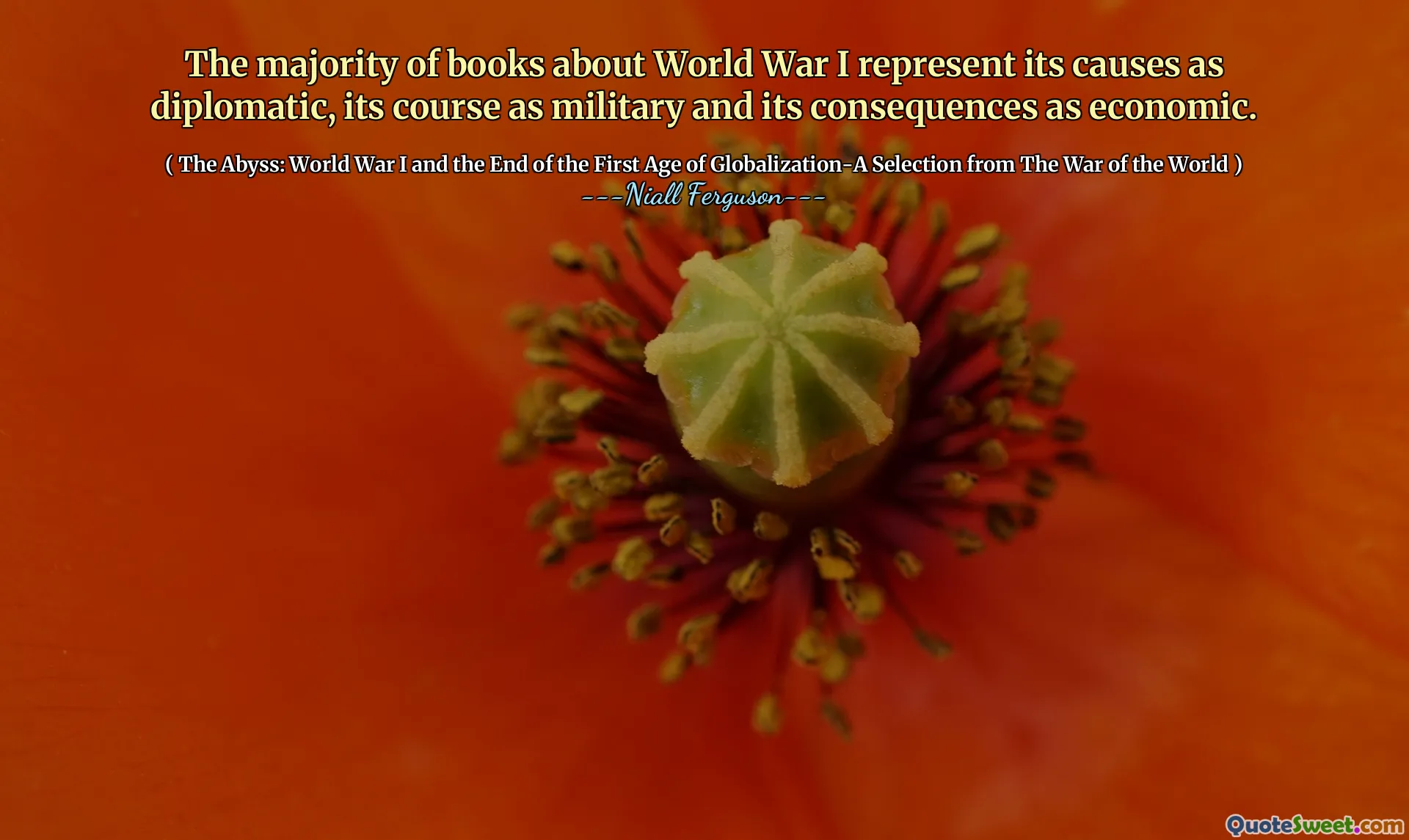
The majority of books about World War I represent its causes as diplomatic, its course as military and its consequences as economic.
In Niall Ferguson's book, "The Abyss: World War I and the End of the First Age of Globalization," the author illustrates a common perspective on World War I. He posits that most literature on the conflict frames its origins as rooted in diplomacy, focuses on the military strategies during the war, and analyzes its aftermath primarily through an economic lens. This approach emphasizes the political and military maneuvers leading up to the war and how they impacted the global economy afterward.
The quote highlights a systematic way of understanding World War I, pinpointing the diplomatic tensions that sparked the conflict, the military tactics that unfolded, and the economic challenges that resulted. It suggests that while the war was fundamentally a transformative global event, its complexities are often oversimplified into distinct categories, losing sight of the interconnections between these dimensions and the human experiences within them.











